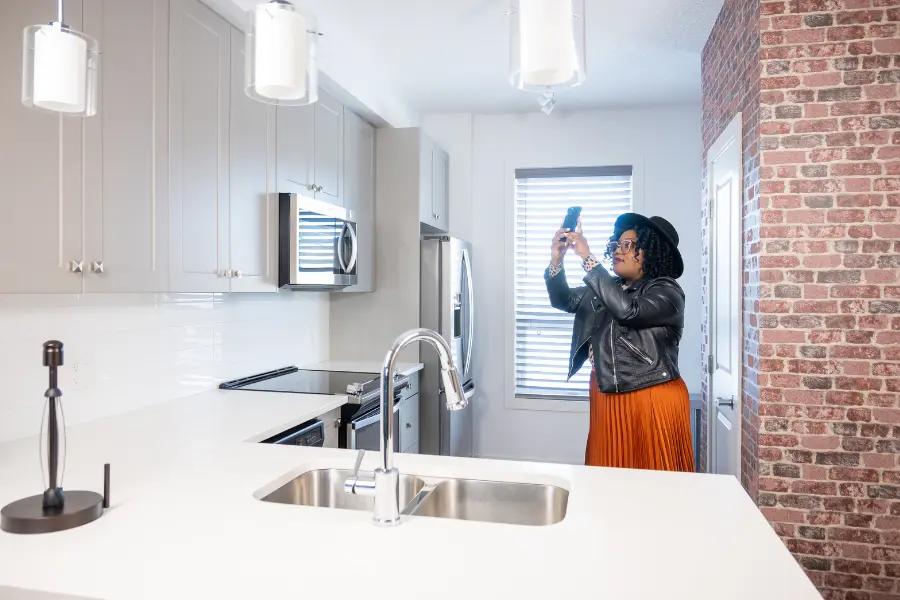The relationship between landlords and tenants can make or break the success of a property investment. Understanding the rights of tenants is not just a legal requirement; it’s a strategic move that can lead to lower turnover rates and a more positive rental experience for both parties involved.
What do you know about the intricacies of tenant rights? Continue reading to discover tenant rights when facing eviction, living without a lease, when the landlord decides to sell the property, and actions tenants can take against landlords. Understanding and respecting the rights of tenants helps property owners, managers, and residents build a trusting relationship that keeps occupancy rates high.
An overview of Texas renters’ rights
In Texas, as in many states, tenants have certain protections that landlords must adhere to. Texas renters enjoy a set of rights and protections designed to ensure fair and lawful treatment by landlords. Some fundamental rights include:
- Right to a habitable property. Tenants have the right to live in a property that meets basic habitability standards, such as working utilities.
- Right to privacy. Landlords must provide reasonable notice before entering a rental unit, typically 24 hours.
- Protection from discrimination. Tenants in Texas are safeguarded against discrimination on the grounds of race, religion, gender, national origin, disability, or familial status.
- Right to notice of sale. When a landlord decides to sell the property, tenants have the right to receive written notice of the sale, including the new owner’s information.
These rules ensure that renters get a fair deal, privacy, and peace of mind in their rental homes and make for a solid landlord-tenant relationship. Let’s dive into some more essential protections that tenants can count on.
Understanding the rights of tenants facing eviction
No property owner wants to handle a situation where a tenant is facing eviction, but knowing tenant rights in such a situation can be crucial.
- Proper eviction procedures. Landlords in Texas must follow proper legal procedures when evicting a tenant. This includes providing written notice and allowing a reasonable amount of time to address the issue.
- Retaliation protection. Texas law prohibits landlords from retaliating against tenants who assert their rights. If a tenant makes a legitimate complaint about the property, the landlord cannot evict them in retaliation for the complaint.
- No “Self-Help” evictions. Landlords can’t take matters into their own hands by forcibly removing a tenant or changing the locks without a court order. Self-help evictions are illegal in Texas and can lead to serious legal consequences.
Knowing what you can and can’t do as a landlord during an eviction process is crucial. Property owners must follow the rules when dealing with eviction. Your property manager should be knowledgeable about lawful procedures to navigate any situation without violating any rights of tenants.
Navigating the rights of tenants without a lease
Knowledgeable property owners and managers will always ensure every property has the appropriate lease paperwork for every tenant, no matter the rental situation. If you’re considering purchasing a new investment property, you might encounter situations without a formal lease agreement. There are rights tenants in Texas can rely on, even without a lease agreement.
- Implied warranty of habitability. Landlords in Texas are legally obligated to provide habitable living conditions, regardless of whether there is a written lease. Examples of habitability include working plumbing, heating, and electrical systems.
- Notice requirements. Proper notice must be given to the tenant before a landlord or property manager enters the investment property. The right to privacy still applies, even without a formal agreement.
- Protection from discrimination. Even without a lease, tenants have protection against housing discrimination. Landlords cannot refuse to rent or renew a lease based on protected characteristics.
In these scenarios, landlords need to grasp that even without a formal lease agreement, there are regulations in place to ensure fairness and prevent any potential abuse or misunderstanding with tenants.
Tenant rights when the landlord sells the property
Change is inevitable, and that includes changes in property ownership. When a landlord decides to sell the rental property, tenants have the right to protect themselves during this transition.
- Notice of sale. Texas law requires landlords to provide tenants with a written notice of the sale of the property. The notice should include the new owner’s name and address.
- Lease continuation. In most cases, the lease agreement remains valid after the property is sold. The new owner must honor the terms of the existing lease until it expires, including rent amounts and lease duration.
- Security deposit transfer. When the property changes hands, the new owner assumes responsibility for the tenant’s security deposit. Inform tenants of this transfer and provide the new owner’s contact information.
It’s essential to understand the requirements for notifying tenants of property sales, lease continuation, and security deposit transfers during ownership changes. Knowing your legal obligations during property ownership changes is crucial, but what happens if things go wrong? Let’s explore the potential grounds tenants might have to sue a landlord in Texas and what landlords need to know to protect themselves.
Grounds for a tenant to sue a landlord in Texas
If a tenant believes there was a violation of their rights, they may take legal action. In Texas, tenants can sue landlords for various reasons, including:
- Breach of the implied warranty of habitability. The tenant may have grounds to sue if the landlord fails to maintain habitable living conditions, such as addressing mold, pest infestations, or plumbing issues.
- Illegal eviction. If the landlord attempts an unlawful eviction, the tenant can take legal action for wrongful eviction, seeking damages for the inconvenience and potential harm caused.
- Discrimination. Tenants can file a complaint or pursue legal action if they believe they’ve experienced discrimination based on protected characteristics.
There are other resources they may use to report potential violations before choosing to directly sue the property owner if a tenant feels their rights are in danger.
Tenant reporting resources
If a tenant thinks they are in a situation where they’re dealing with a bad landlord, reporting the issue to the appropriate authorities is crucial. Here are the steps they can take:
- Texas Department of Housing and Community Affairs (TDHCA). TDHCA is the primary agency responsible for handling complaints concerning housing discrimination and fair housing violations in Texas. Tenants can file a complaint online or contact them directly for assistance.
- Local code enforcement. A tenant can contact the local code enforcement office if a rental property violates health or safety codes. An officer will investigate and enforce compliance with building and housing codes.
- Legal aid organizations. If a tenant needs legal assistance, various legal aid organizations in Texas specialize in the rights of tenants. They can provide guidance and, in some cases, represent tenants in legal proceedings.
By choosing to work with an experienced property manager, investment property owners can avoid potential issues and create relationships that build lasting trust.
Building a Positive Rental Experience
Investing in tenant rights is not just a legal obligation for landlords; it’s a strategic move that can lead to a positive rental experience. By understanding and respecting the rights of tenants, landlords can build trust and reduce turnover. Likewise, tenants should know their rights, empowering them to advocate for fair treatment and seek recourse when necessary. By fostering a healthy relationship with your tenants, you can create a win-win situation for everyone.




